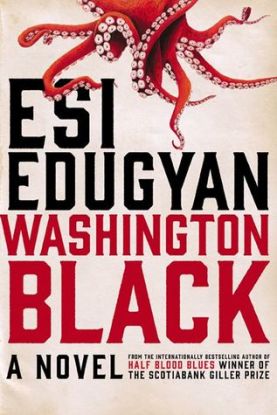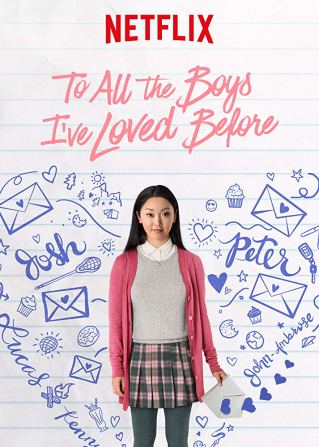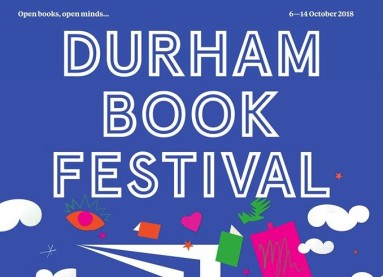Borrowed from Paula at Book Jotter.
Regular readers may have noticed that this blog has gone a bit quiet recently. I’ve been facing some difficult personal upheavals again, and I’ve been finding it hard to concentrate on reading, let alone writing reviews. However, things seem to be settling down a bit now, especially work-wise – I’m settling into my new job as a research fellow at Queen Mary University of London, and have just submitted the full manuscript of my first academic book, A Progressive Education? How Childhood Changed in Mid-Twentieth-Century English and Welsh Schools, which is under contract with Manchester University Press.
Reading

I was reading Esi Edugyan’s Booker-shortlisted Washington Black before things went pear-shaped, and so it probably suffered somewhat from being read over an exceptionally long period of time. Washington Black shares some surface similarities with Jane Harris’s recent Sugar Money: they are both narrated by a young, male, enslaved narrator who starts his story in the West Indies, although Washington Black is set in the early nineteenth century, exploring the shifting legal position of slavery at the time, whereas Sugar Money deals with a slave revolt in the mid-eighteenth century. Both books also tap into an eighteenth- and early-nineteenth century tradition of adventure narratives, which can lead them to feel a bit repetitive, as the story jumps from one dramatic event to another. However, I found Washington Black much more reflective and emotionally resonant than Sugar Money, helped by the fact that it takes place over a longer period of time and moves through a range of geographically diverse settings.
Washington Black’s life is transformed when, as a young boy, he comes into contact with his master’s brother, ‘Titch’, who helps him escape from slavery and adventure into the unknown. Like Sugar Money, Washington Black moves from scenes of intense and horrifying realism – most of which take place on the Barbados plantation – to more whimsical escapades, as when Washington and Titch fly off in a hot air balloon and, finding themselves about to crash into the sea, manage to steer it so they land on a ship (much to the captain’s displeasure). Tonally, Edugyan handles this expertly, and Washington’s voice is convincing and compelling.
Nevertheless, I felt that something was lacking in the cast of this novel. Frustratingly, it was Titch rather than Washington who came most vividly alive for me. Initially appearing as a kind of ‘white saviour’, or, in more historically-appropriate terminology, a ‘knight in shining armour’, Titch’s mind and motives are deconstructed across the course of this novel. Edugyan cleverly flips our perspective on him a number of times, revealing his inner conflict while not allowing him to become truly sympathetic. The final scene between him and Washington is especially powerful. While I appreciated this nuanced portrait, it’s a shame that the main black characters feel so wooden in comparison. Washington notably comes to life only when he interacts with Titch, while a love interest introduced about halfway through the novel remains no more than that. I’d be surprised if this won the Booker today (though I am usually wrong about prizes, so it probably has a good chance).
I received a proof copy of this novel from the publisher for review.
Watching

Due to aforementioned life events, I haven’t been watching anything especially intelligent recently. Netflix’s sweet rom-com To All The Boys I’ve Loved Before was perfect escapism. The predictable plot follows a girl who has to confront a series of past crushes after her secret love letters to them get mailed out, but it’s nice to see a more diverse cast in this genre – the heroine, Lara Jean, is Korean-American in the novel, though played in the film by a Vietnamese-American actress. I liked what the author of the original novel, Jenny Han, had to say about the casting of Lara Jean: ‘One producer said to me, as long as the actress captures the spirit of the character, age and race don’t matter… I said, well, her spirit is Asian-American. That was the end of that.’
Thinking

I went to see Sarah Waters talk about her 2009 novel, The Little Stranger, which has just been made into a film, at the Durham Book Festival. The talk was followed by a screening of the film, which, rather to my surprise – having thought the book would be difficult to film – I very much enjoyed. The film manages to be genuinely creepy, restraining the urge to have anything flashy happen, and Ruth Wilson is superb as Caroline, completely inhabiting her ‘unfeminine’ gait and confident sloppiness. Waters always interviews well, and I was particularly intrigued by a comment she made about the ‘ontological shock’ that should be at the heart of any good ghost story. As Waters put it, if we see a ghost, this should surely strike at the heart of our understanding of the laws of reality. If we see a ghost, surely now anything could happen – a glass could fly across the table, we ourselves could fly apart. I think Waters is absolutely right about the horror of this, and it’s something I think very few ghost stories do well. (I have to say, this is something that always annoyed me in Harry Potter as well – both Harry and Hermione are SO confident about what is silly and mythical, e.g. Luna Lovegood’s Crumple-Horned Snorkacks, and what is real. If you were introduced to a world of magic at the age of eleven, might you not be a bit more open-minded in the future? I have a vintage fanfic from 2004 that explores this question – that’s how much it got to me!)
An excellent Three Things, Laura. Sorry to hear about your difficulties but good to hear you’re coming out the other side. All the very best with your manuscript – here’s hoping for good news from Manchester University Press! 🤞
LikeLiked by 1 person
Thank you! The book is under contract but it will now be reviewed externally and I will have to see how much they want me to change before publication.
LikeLiked by 1 person
Congratulations on the book and the new job! So are you based in/near London full time now? I hope we’ll be able to meet up at a future literary event in the area. I hope everything else settles down for you soon and that you’re able to spend time reading some books you enjoy. (I’m keen to read the nonfiction books that you have on the go. How are you finding the Le Guin?)
I wouldn’t be too surprised if Washington Black wins the Booker. It’s probably my runner-up after Powers, though I think the Giller or Women’s Prize might be more suitable for it overall.
LikeLiked by 1 person
So part of the issue with the new job is that I’m still based in Newcastle (it’s a research fellowship so I have no real contact time, and I didn’t want to leave the network I’ve built up here – I have lots of friends in London but, as usual, they’re very scattered, and it’s so much more expensive!) However, I am usually in London a few times a month, and I can usually work round events if I know about them in advance. Let me know if there’s one you have in mind – it would be lovely to meet you!
The Ice Museum is great – non-fiction about the Arctic and Antarctic is a bit of an overcrowded field, but it stands out for me. I’m unfortunately finding Out of the Woods a bit pretentious and navel-gazing. I’m slowly getting into Le Guin. I find that I need to enter a certain mindset to read her, and it helps having read the Earthsea novels previously.
Having read a few articles on the Booker since writing this post, I agree that Washington Black is a likely win. I definitely need to read Powers.
LikeLike
That’s got to be tough commuting between Newcastle and London regularly. Except that it gives you good in-built reading time 🙂
I’m glad to hear that the Arctic book is a stand-out. I have it from NetGalley and will try to get to it soon.
LikeLiked by 1 person
I also watch the movie To All the Boys I’ve Loved Before. I really enjoyed myself, but when I mention to some of my book blog friends that I saw the movie, they said that the book was a bit different in regards to the boyfriend. Apparently, he’s quite the little shit in the book–basically much more realistic to teenage boys.
LikeLiked by 1 person
Oh no, what a shame! I have to admit I’m tired of YA ‘heroes’ who are actually idiots, so I liked the portrayal of the boyfriend in the movie. I’ve known some lovely teenage boys – both when I was a teenager and when working with teenagers as an adult – so I don’t think it’s a question of realism, especially not in this genre.
LikeLike
That’s interesting. Most people seem have a terrible time with teenage boys, but maybe we’re all being too harsh. I know the poverty and education levels in an area make a big difference. Lara Jean seems like she’s in an upper middle class town based on her house and father’s occupation.
LikeLiked by 1 person
I think there’s a lot of generalisation about teenagers that wouldn’t be acceptable if we were talking about another social group – a lot of my academic research deals with this! Yes, everyone in the film seems VERY well off.
LikeLiked by 1 person
Glad to hear things have settled Laura – I hope they’ll continue on an even keel. I am jealous that you got to hear Sarah Waters – I love her work and she is on my wishlist of authors I’d love to book for HomePlace.
LikeLiked by 1 person
She always gives wonderful interviews. I last heard her speak in 2005, so it was great to hear her again!
LikeLike
Thinking of you in your upheavals; would be lovely to meet up if there’s ever a good time when you’re in London! You’re one of several people who’ve told me that To All the Boys I’ve Loved Before is worth a watch, so that’ll definitely be in the queue…
LikeLiked by 1 person
Thank you! It would be lovely to finally meet up sometime. I’m next around in London November 12th to 16th, so drop me an email if you’re free at all then and we can see if we can sort something laura.tisdall@gmail.com. If not, sure there will be another time!
To All The Boys… is perfect comfort viewing, recommend for a bad day!
LikeLike
Yay! I’ll shoot you an email soon 🙂
LikeLiked by 1 person
Pingback: Shadow Giller: Washington Black by Esi Edugyan – Consumed by Ink
Pingback: Thoughts on the Women’s Prize for Fiction Longlist, 2019 | Laura Tisdall
Pingback: Women’s Prize for Fiction Longlist, #4: Remembered & Bottled Goods | Laura Tisdall